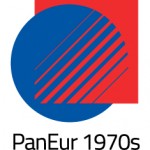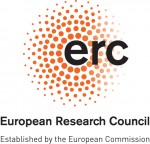RELATED EVENTS

The year 1989 saw a culmination of many years of dissident efforts which meant freedom and democracy for East-Central Europe. The rise of a number of sovereign countries brought joy and high hopes for their citizens, but also doubts and anxiety as to what the future might hold.
Thirty years later, experts from different countries, including Professor James Mark, are meeting in Warsaw to discuss these turbulent events, their interpretations today and the legacy of the fall of the Iron Curtain for the next generations. The conference is organised on the anniversary of the conclusion of the Polish Round Table Talks which were the first in a series of negotiations between communist authorities and the opposition in several countries of the Eastern Bloc.
RELATED PROJECTS
Socialism Goes Global is an Arts and Humanities Research Council-funded collaborative project between the Universities of Belgrade, Columbia, Exeter, Leipzig, Oxford, the Hungarian Academy of Sciences and University College exploring the relationship between decolonisation and the global influence of socialism.
 Networking: European Network Remembrance and Solidarity
Networking: European Network Remembrance and Solidarity
http://enrs.eu/
An initiative which aims to connect institutions and individuals in the field of modern history and memory of 20th century Europe, enabling them to share experiences, contacts and ideas.
The Genealogies of Memory project facilitates academic exchange between Central and East European scholars of individual and collective memory. It also promotes the region’s study of memory among the broader international academic community.

Imre Kertész Kolleg’s Cultures of History Forum offers a place to debate the cultures of history in East Central and South Eastern Europe. The Forum is concerned with how the countries between Germany and Russia and on the Balkan peninsula are coming to terms with their twentieth century past in the twenty-first.
 Looking West: the European Socialist regimes facing pan-European cooperation and the European Community (PanEur1970s)
Looking West: the European Socialist regimes facing pan-European cooperation and the European Community (PanEur1970s)
https://paneur1970s.eui.eu/



PanEur1970s is a five-year project (2015-2020) – based at the European University Institute (EUI) – to investigate the European Socialist regimes’ expectations and predicaments vis-à-vis the opening of a space of pan-European cooperation in the long 1970s. PanEur1970s has received funding from the European Research Council (ERC) through and Advanced Research Grant, under the European Union’s Horizon 2020 research and innovation programme (Grant Agreement n. 669194).
FACEBOOK GROUPS
[Top]










 Looking West: the European Socialist regimes facing pan-European cooperation and the European Community (PanEur1970s)
Looking West: the European Socialist regimes facing pan-European cooperation and the European Community (PanEur1970s)

